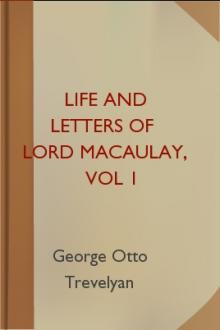Lady Audley’s Secret - M. E. Braddon (best pdf ebook reader for android TXT) 📗

- Author: M. E. Braddon
Book online «Lady Audley’s Secret - M. E. Braddon (best pdf ebook reader for android TXT) 📗». Author M. E. Braddon
The lowing of a cow in the quiet meadows, the splash of a trout in the fishpond, the last notes of a tired bird, the creaking of wagon-wheels upon the distant road, every now and then breaking the evening silence, only made the stillness of the place seem more intense. It was almost oppressive, this twilight stillness. The very repose of the place grew painful from its intensity, and you felt as if a corpse must be lying somewhere within that gray and ivy-covered pile of building—so deathlike was the tranquillity of all around.
As the clock over the archway struck eight, a door at the back of the house was softly opened, and a girl came out into the gardens.
But even the presence of a human being scarcely broke the silence; for the girl crept slowly over the thick grass, and gliding into the avenue by the side of the fishpond, disappeared in the rich shelter of the limes.
She was not, perhaps, positively a pretty girl; but her appearance was of that order which is commonly called interesting. Interesting, it may be, because in the pale face and the light gray eyes, the small features and compressed lips, there was something which hinted at a power of repression and self-control not common in a woman of nineteen or twenty. She might have been pretty, I think, but for the one fault in her small oval face. This fault was an absence of color. Not one tinge of crimson flushed the waxen whiteness of her cheeks; not one shadow of brown redeemed the pale insipidity of her eyebrows and eyelashes; not one glimmer of gold or auburn relieved the dull flaxen of her hair. Even her dress was spoiled by this same deficiency. The pale lavender muslin faded into a sickly gray, and the ribbon knotted round her throat melted into the same neutral hue.
Her figure was slim and fragile, and in spite of her humble dress, she had something of the grace and carriage of a gentlewoman, but she was only a simple country girl, called Phoebe Marks, who had been nursemaid in Mr. Dawson’s family, and whom Lady Audley had chosen for her maid after her marriage with Sir Michael.
Of course, this was a wonderful piece of good fortune for Phoebe, who found her wages trebled and her work lightened in the well-ordered household at the Court; and who was therefore quite as much the object of envy among her particular friends as my lady herself to higher circles.
A man, who was sitting on the broken woodwork of the well, started as the lady’s-maid came out of the dim shade of the limes and stood before him among the weeds and brushwood.
I have said before that this was a neglected spot; it lay in the midst of a low shrubbery, hidden away from the rest of the gardens, and only visible from the garret windows at the back of the west wing.
“Why, Phoebe,” said the man, shutting a clasp-knife with which he had been stripping the bark from a blackthorn stake, “you came upon me so still and sudden, that I thought you was an evil spirit. I’ve come across through the fields, and come in here at the gate agen the moat, and I was taking a rest before I came up to the house to ask if you was come back.”
“I can see the well from my bedroom window, Luke,” Phoebe answered, pointing to an open lattice in one of the gables. “I saw you sitting here, and came down to have a chat; it’s better talking out here than in the house, where there’s always somebody listening.”
The man was a big, broad-shouldered, stupid-looking clodhopper of about twenty-three years of age. His dark red hair grew low upon his forehead, and his bushy brows met over a pair of greenish gray eyes; his nose was large and well-shaped, but the mouth was coarse in form and animal in expression. Rosy-cheeked, red-haired, and bull-necked, he was not unlike one of the stout oxen grazing in the meadows round about the Court.
The girl seated herself lightly upon the woodwork at his side, and put one of her hands, which had grown white in her new and easy service, about his thick neck.
“Are you glad to see me, Luke?” she asked.
“Of course I’m glad, lass,” he answered, boorishly, opening his knife again, and scraping away at the hedge-stake.
They were first cousins, and had been play fellows in childhood, and sweethearts in early youth.
“You don’t seem much as if you were glad,” said the girl; “you might look at me, Luke, and tell me if you think my journey has improved me.”
“It ain’t put any color into your cheeks, my girl,” he said, glancing up at her from under his lowering eyebrows; “you’re every bit as white as you was when you went away.”
“But they say traveling makes people genteel, Luke. I’ve been on the Continent with my lady, through all manner of curious places; and you know, when I was a child, Squire Horton’s daughters taught me to speak a little French, and I found it so nice to be able to talk to the people abroad.”
“Genteel!” cried Luke Marks, with a hoarse laugh; “who wants you to be genteel, I wonder? Not me, for one; when you’re my wife you won’t have overmuch time for gentility, my girl. French, too! Dang me, Phoebe, I suppose when we’ve saved money enough between us to buy a bit of a farm, you’ll be parleyvooing





Comments (0)